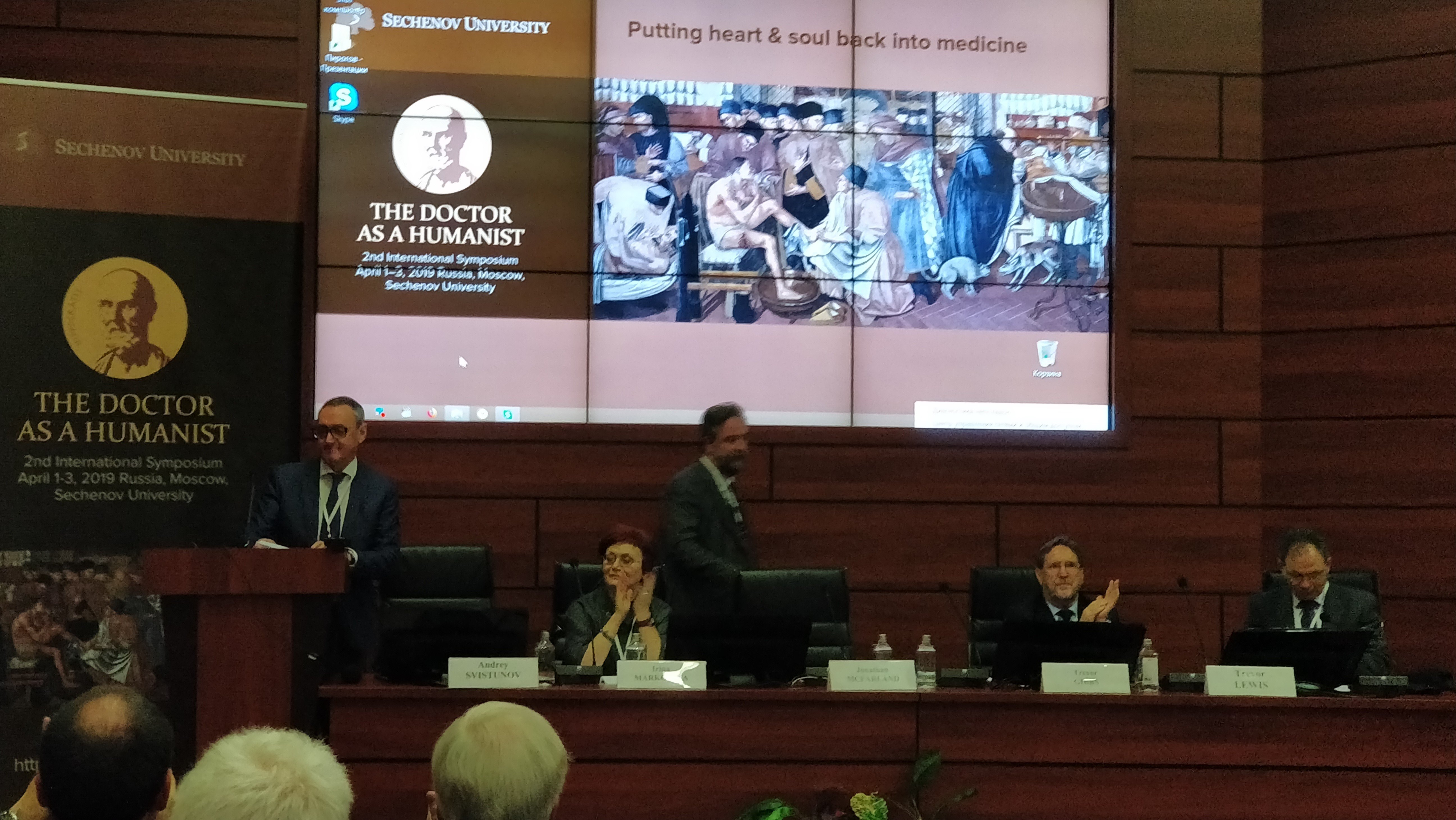Are Doctors Humanists?
Are doctors humanists? If not, should they be? What role do the humanities play in an increasingly technologically-driven healthcare sector?
While working in Moscow recently, I had the chance to attend parts of the thought-provoking Doctor as a Humanist Symposium, held at Sechenov Medical University.
Jonathan McFarland and his team brought together an impressive line up of international speakers, including academics, researchers, writers, practitioners and students from Spain, Russia, Canada, the US, the UK, Italy and Mexico.

Opening session at the Doctor as a Humanist Symposium, from left to right Prof. Andrey Svistunov, Prof. Irina Markovina, Jonathan McFarland (symposium organiser), Prof, Trevor Gibbs, Trevor Lewis (British Embassy)
What was covered
Topics ranged from the general, such as the future of medical humanities and what it means for a doctor, or indeed anyone, to be a humanist, to the specific, for example the portrayal of physicians in televised drama or the experience of working in Liberia during the Ebola pandemic. There were specific focuses on the arts, with sessions on poetry, Proust and Bulgakov’s Master and Margarita.
As a linguist working primarily with medical professionals, the sessions provided much food for thought. They also coincided well with the doctors and technology theme of the Medical English Olympiad I had judged two days previously.
Some observations and questions…
- If humanism is about celebrating humanity and human potential, then being a humanist is at the heart of what doctors do.
- There is a central issue with how doctors pursue humanist interests and approaches in an era of rapidly expanding knowledge and research. Many are simply too busy.
- The associated need to specialise in order to work effectively with increasing information means that doctors potentially lose a sense of the general and global.
- How do humanities mitigate the impact of technology on healthcare? Are we in danger of over-medicalising birth or death? Is medicine increasing focused on technical and functional care? What about empathy and the patient?
- Humanities offer a global, multi-dimensional perspective, so is a ‘best practice’ possible? How does a doctor use the critical lens humanities provides to ‘humanise’ the work they do?
Some of these observations and questions seem to apply to other sectors. Education is one obvious example that sits very close to me.
Mitigating the effects of technology
In an age where we both deify and fear technology, where we are always ‘connected’, and as we move towards standardised and process-focused workplaces, the role of the humanities seems more vital than ever.
The speakers and attendees at the Symposium clearly felt that there is work to be done and presented a variety of ideas and practices that would facilitate a more humanistic approach to healthcare. These included both integrating it more formally into undergraduate courses and assessment on the one hand and building it into everyday practice on the other.
So, congratulations to Jonathan and his team at Sechenov University for putting on such a varied and thought-provoking event! I look forward very much to seeing how the movement progresses.
Read more
If you’re interested, here are some resources you can access to find out more, from my somewhat limited reading. I’m sure there are plenty more out there.


